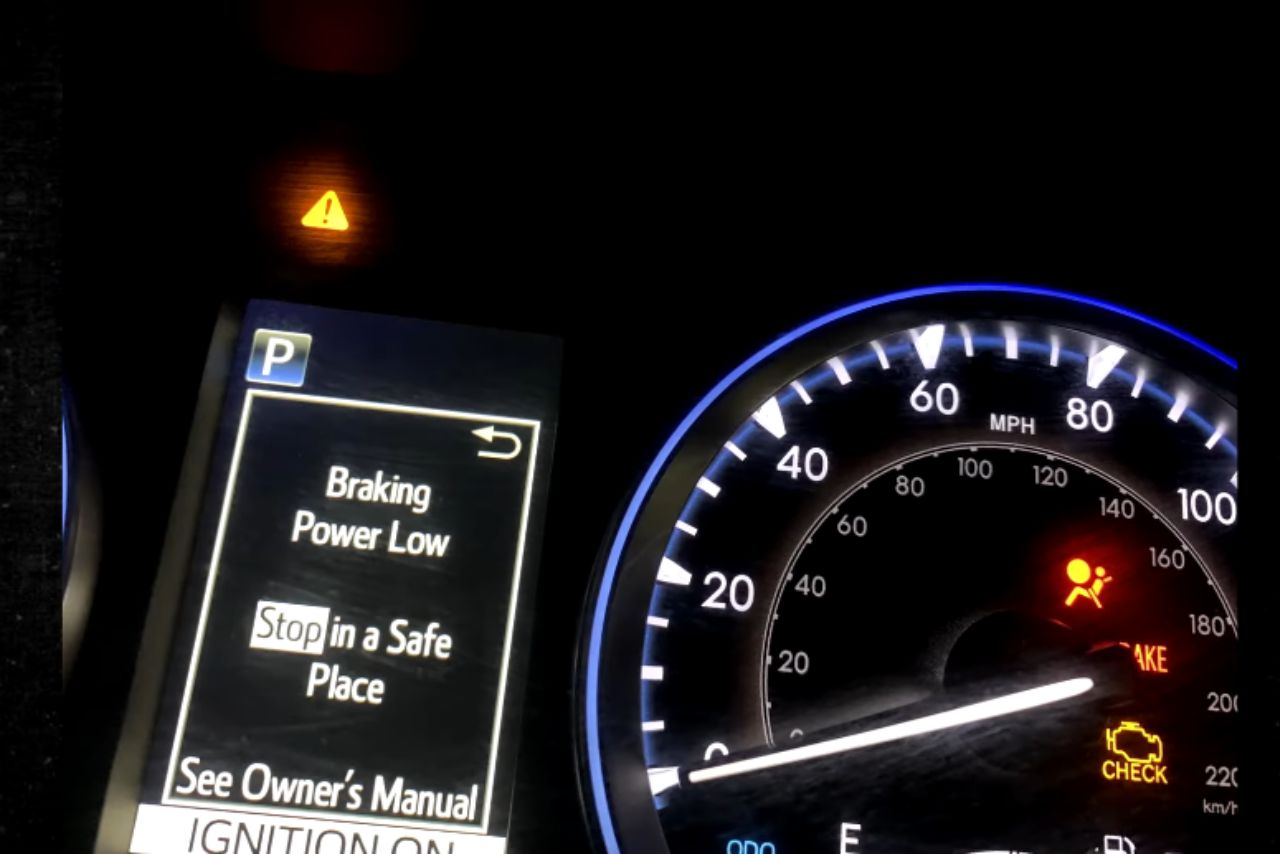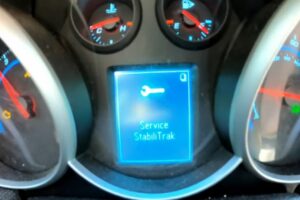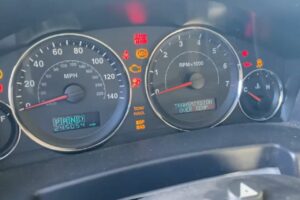If you’ve noticed a message “Braking Power Low Lexus“, it’s critical to address the issue promptly.
If your Lexus RX displays “Low Brake Power,” it is due to a weak battery, Brake Servo or extended periods of inactivity. This issue, prevalent in some 2016-2018 models, can lead to a stiff brake pedal and difficulties starting the car. In such cases, addressing the battery condition, replacing the Brake Servo or driving the car regularly help you to alleviate the problem.
In this guide, we will explore various potential triggers for weakened braking power in a Lexus vehicle along with their appropriate solutions.
It could be as simple as replacing brake fluid or might require more extensive repairs; either way, keep reading for essential insights on keeping your Lexus’ brakes at peak performance.
Here In the below image You Can see the proof 👇, one of our reader who fixed his Braking Power Low Lexus problem by using our method this issue was due to Bad battery and he replaced his battery and the issue got fixed! 😍

Table of Contents
Why is Braking Power Low in Lexus?
| Possible Cause | Impact |
|---|---|
| Weak Battery | Difficulty starting the car, leading to the “Low Brake Power” warning. |
| Brake Servo Issues | Reduced power assistance, contributing to a stiff brake pedal. |
| Extended Inactivity | Loss of brake fluid pressure, triggering the warning after prolonged rest. |
| Recommended Action | Address battery condition, seek assistance for brake servo, and drive the car regularly to maintain optimal brake performance. |
The “Low Brake Power”issue in Lexus RX models, particularly in the 2016-2018 range, can be attributed to various factors, including a compromised battery, brake servo concerns, and extended periods of inactivity.
A weakened battery may lead to difficulties starting the car, causing a stiff brake pedal. The brake servo, responsible for power assistance, might experience issues, contributing to the problem.
Additionally, if the vehicle remains stationary for an extended duration, it can result in a loss of brake fluid pressure, triggering the warning.
Regularly driving the car or addressing the battery condition can help mitigate these issues. A comprehensive overview is presented in the following table:
Common Symptoms of Braking Power Low Lexus:

Identifying the symptoms early on can help prevent a minor issue from becoming a major problem. Here are some common signs that your Lexus might have low braking power:
Here’s a quick reference table for these symptoms:
| Symptom | Possible Cause |
|---|---|
| Soft Brake Pedal | Air in brake line |
| Car pulling to one side when braking | Uneven wear on brakes |
| Vibrations while braking | Warped Rotors |
| Delayed stopping time | Worn out brake pads |
Remember, safety comes first! As soon as any of these signs surface, seek professional help immediately.
Brake Fluid Issues:

Brake fluid plays a crucial role in your Lexus’ braking system. When it’s low or contaminated, you might encounter the “braking power low” warning. Here are some main causes and fixes:
Low Level of Brake Fluid:
- Cause: Over time, brake fluid levels can drop due to minor leaks or normal wear and tear.
- Fix: Regularly check the brake fluid reservoir. If it’s below the minimum line, top it up with an appropriate type of brake fluid.
Contaminated Brake Fluid:
- Cause: Contamination usually happens when water seeps into the brake fluid over time. It lowers the boiling point of the liquid which leads to poor braking performance.
- Fix: Flush out old or contaminated brake fluid and replace with new one every two years or as recommended by Lexus.
To know if these problems exist, look for these symptoms:
| Symptom | Possible Cause |
|---|---|
| Soft/spongy brakes | Low level/contaminated brake fluid |
| Brakes not responding immediately | Low level/contaminated brake fluid |
Remember: dealing with brakes is no child’s play so if you’re unsure about anything, consider consulting a professional mechanic.
Worn Out Brake Pads:
Worn out brake pads are a common cause of low braking power in Lexus vehicles. Over time, the friction material on the brake pad wears thin, reducing its ability to stop the car effectively.
Here’s what you need to know:
Keep in mind that different models may require specific types of brake pads. Always check your owner’s manual or consult with a professional mechanic before making any changes.
| Model | Recommended Brake Pad Type |
|---|---|
| Lexus RX | Ceramic |
| Lexus ES | Semi-Metallic |
| Lexus NX | Organic |
Remember: Your safety is paramount! Don’t ignore warning signs and never attempt repairs if you’re not confident in your abilities.
Malfunctioning Brake Calipers:
Malfunctioning brake calipers can significantly compromise the braking power of your Lexus. Here are the main causes and solutions:
| Causes | Fixes |
|---|---|
| Sticking Caliper | Clean & Lubricate Regularly |
| Leaking Fluid | Replace Faulty Component |
| Worn Out Pads | Replace With New Ones |
Here’s how to identify these issues:
- Inspect regularly: Make regular checks part of your routine maintenance schedule.
- Listen for sounds: Squeaks or grinding noises may indicate problems with your brake system.
- Feel for changes: Changes in how your brakes feel could mean that something is wrong.
Remember – safety first! Always consult a professional if you’re unsure about any aspect of maintaining or repairing your vehicle’s braking system.
Faulty Brake Master Cylinder:
The brake master cylinder is a critical component of your Lexus’ braking system. It’s responsible for converting the force from your foot on the pedal into hydraulic pressure to apply the brakes.
When it fails, you might experience low braking power.
Here are some common symptoms and ways to fix a faulty brake master cylinder:
| Symptoms | Possible Causes | Fixes |
|---|---|---|
| Soft or Spongy Brake Pedal | Damaged Seals | Replace seals |
| Brake Fluid Leak | Cracks in Master Cylinder | Professional Inspection & Replacement |
| Warning Lights Illuminate | Failing Master Cylinder | Use OBD-II Scanner |
Remember:
- Always prioritize safety – get professional help when needed.
- Regular maintenance helps prevent problems before they happen.
- Do not ignore warning signs – they alert you about potential issues ahead of time!
Issues with Brake Lines and Hoses:

Brake lines and hoses are the lifelines of your Lexus’ braking system. If these components encounter issues, it can significantly lower the braking power of your vehicle. Below we’ll discuss some common problems:
Here’s a simple breakdown:
| Issue | Symptom | Solution |
|---|---|---|
| Leaky Brake Lines | Spongy brakes; Decreased performance | Replace damaged part/whole line |
| Clogged Brake Hoses | Uneven Braking; Car pulls to one side when braked | Clean contaminants; Hose replacement |
Always consult a professional mechanic for any serious concerns related to your Lexus’ braking system.
Problems with the ABS System:

The Anti-lock Braking System (ABS) is key in maintaining braking power. Issues here can lead to low braking power on your Lexus. Let’s delve into some common problems and their fixes:
Also, regular maintenance plays an important role in preventing these issues:
- Regularly inspect your car’s brake system
- Ensure that all electrical connections are clean
- Always make sure there’s enough brake fluid in reservoir
| Issue | Fix |
|---|---|
| Faulty ABS Module | Replace/repair |
| Damaged Speed Sensors | Clean/replace |
| Worn-out Brake Lines | Inspect regularly; replace if necessary |
Remember: always consult a professional when dealing with complex parts like the ABS system!
You can also watch this Video to fix the issue:
How to Fix Low Braking Power in a Lexus?

If your Lexus is suffering from low braking power, don’t worry. Here’s how you can fix it:
Resolving the issue of “Low Brake Power” in a Lexus demands a methodical approach. Commence by evaluating the condition of the battery, replacing it if found to be weak, as inadequate battery power often underlies the problem.
Subsequently, conduct a comprehensive inspection of the brake servo to ensure its optimal functionality, seeking professional intervention if necessary.
Additionally, if the vehicle encounters extended periods of inactivity, regular operation is recommended to sustain brake fluid pressure.
Engaging the expertise of a Lexus dealership for a thorough assessment and requisite repairs ensures a professional resolution to restore the vehicle’s braking efficacy.
Regular Maintenance Tips for Optimal Braking Performance:
For your Lexus to maintain top-notch braking performance, regular maintenance is key. Here are some handy tips:
Table: Recommended Maintenance Interval:
| Component | Recommended Inspection Interval |
|---|---|
| Brake Fluid | Every 10k miles |
| Brake Pads | Every 20k miles |
| Rotors | Every 30k miles |
- Regular Professional Checkups: Schedule a professional inspection of your brakes every year or after driving approximately 12,000 miles.
- Avoid Overloading Vehicle: Overloading puts undue stress on your car’s braking system which can lead to premature wear and tear.
- Drive Responsibly: Aggressive driving habits like hard stopping can negatively affect the lifespan of your brakes.
By following these simple maintenance tips regularly, you will help keep your Lexus’s braking power optimal while also prolonging its overall lifespan!
Conclusion and final thoughts
Navigating the maze of brake issues can be daunting, but you’re not alone. We’ve broken down the main causes and fixes for low braking power in your Lexus.
Remember, a car’s braking system is its lifeline and regular maintenance will keep it running smoothly.
Don’t ignore any signs of trouble – squeaks, vibrations or reduced stopping power. Simple steps like regularly changing brake fluid or replacing worn-out parts can prevent major problems down the road.
If you are unsure about fixing these issues by yourself, always seek professional help to ensure your safety on the road.
Reference:
https://static.nhtsa.gov/odi/tsbs/2018/MC-10131765-9999.pdf
Latest Posts:
- Can WD-40 Remove Scratches on Cars? (Hint: Yes, but…)
- Can You Use a Drill to Polish Your Car? (We Tried it Out!)
- Should You Cover Car Scratches With Stickers? (REVEALED!)
- Buick Service Stabilitrak: (Causes & 100% Guaranteed Fix!)
- Common Holden Trax Problems (Causes & 100% Proven Fixes!)
- Jeep Commander Transmission Over Temp: (Guaranteed Fix!)











Leave a Reply